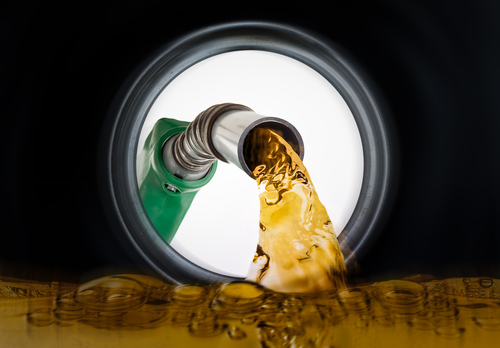No, Diesel Engines Do Not Need or Use Spark Plugs
Diesel engines play a crucial role in powering a wide range of vehicles and machinery.
Their design allows them to operate efficiently and reliably under demanding conditions.
Combustion Process
- Air Intake: Your diesel engine begins its cycle by drawing in air.
- Compression: The air is then compressed, which heats it up significantly.
- Fuel Injection: At the peak of compression, diesel fuel is injected.
- Ignition: The heat of the compressed air lights the fuel. No spark plug is needed.
- Expansion and Exhaust: The ignited fuel pushes the piston down, and the exhaust gases are expelled.
Diesel vs. Gasoline Engines
- Ignition Method: Diesel engines use compression ignition, while gasoline engines use spark plugs for ignition.
- Fuel Type: Diesel fuel is denser and contains more energy per liter than gasoline.
- Engine Speed: Diesel engines typically run at lower RPMs compared to gasoline engines.
- Torque: You’ll notice that diesel engines produce higher torque at lower speeds.
Ignition System Components

Diesel engines operate differently from their gasoline counterparts, with the ignition system being a notable point of distinction.
To inform you about the components involved, it’s crucial to examine the role of each piece in a diesel ignition system.
- Glow Plugs: Diesel engines use glow plugs instead of spark plugs.
- When you start your engine, these plugs heat the combustion chambers, facilitating the ignition of diesel fuel under high pressure.
- Fuel Injector Nozzles: They deliver fuel directly into the combustion chamber at the right moment and with the precise spray pattern required for efficient combustion.
- Compression System: The air is compressed to a high degree, raising its temperature. This is key for ignition as diesel engines rely on heat generated from compressed air to ignite the fuel.
In contrast to gasoline engines:
- No Spark Plugs or Distributor: As there’s no need for a spark to ignite the fuel, these components are absent in diesel engines.
- Battery and Starter: These are responsible for providing the initial power to your engine’s components, especially the glow plugs and fuel injection system during engine start-up.
Glow Plugs Heat the Combustion Chamber to Get the Process Started
Glow plugs play a critical role in the operation of diesel engines; unlike their gasoline counterparts, diesel engines do not use spark plugs to ignite the fuel-air mixture. Instead, they rely on high compression and heat.
However, during cold starts, the engine block may not be warm enough to provide the necessary heat for ignition.
This is where glow plugs come in, serving as vital components for starting diesel engines in lower temperatures.
- Pre-heating the Combustion Chamber: Glow plugs heat up, bringing the air within the combustion chamber to a temperature conducive to fuel combustion.
- Reducing Startup Time: With the aid of glow plugs, your diesel engine starts faster, minimizing the wait time in cold weather.
- Lowering Emissions: By ensuring proper combustion from startup, glow plugs help reduce exhaust emissions that would typically be higher during cold starts.
- Improving Engine Longevity: Consistent and efficient ignitions contribute to the overall health and longevity of your diesel engine.
Here is how glow plugs function:
- Activation: When you turn the ignition key, the glow plug warms up.
- Heating Phase: It takes a few seconds for the glow plug to reach the correct temperature.
- Combustion Support: Once heated, the glow plugs facilitate the diesel engine’s ignition of the fuel-air mixture.
A Properly Maintained Diesel Engine Lasts a Really Long Time
Proper maintenance ensures longevity and optimal performance for your diesel engine.
Regular attention to its critical components will keep your vehicle running smoothly.
Routine Checks
- Oil Levels and Quality: Check your engine oil regularly to ensure it’s within the right level and hasn’t degraded in quality. Replace it as per the manufacturer’s recommended intervals.
- Air Filters: Inspect air filters and clean or replace them when they become clogged to prevent strain on the engine and reduced fuel efficiency.
- Fuel System: Maintain the fuel system by regularly checking the fuel filters and replacing them when necessary to keep the fuel clean and efficiently flowing.
- Coolant: Keep an eye on coolant levels and top it up if needed. Change the coolant every one to two years to prevent corrosion and overheating.
- Belts: Examine the belts for any signs of wear or damage and replace them before they fail to avoid engine damage.
Replacing Glow Plugs
- Glow plugs in diesel engines take the place of spark plugs found in gasoline engines.
- Inspection: Check your glow plugs periodically for signs of wear or damage. Do this particularly if you’re experiencing starting issues in cold weather.
- Replacement Interval: Most manufacturers suggest replacing glow plugs every 100,000 miles. But consult your vehicle’s maintenance guide for specific recommendations.
- Replacement Process:
- Disconnect Battery: Always disconnect the vehicle’s battery before starting the replacement to avoid electrical shocks.
- Remove and Test: Remove the glow plugs and test them using a glow plug tester. Replace any that fail the test.
- Install New Plugs: Carefully install new glow plugs. Make sure not to overtighten and damage the threads. Reconnect the battery once all plugs are installed.
